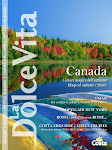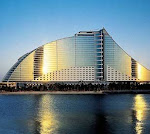Summary
The Hungarian Authorities have removed the epidemic alert at the airport on the grounds that they consider new cases are no longer predominantly caused by foreign travel. The rising number of confirmed cases is caused by domestic, in-country transmission.
Terrorism
There is a low threat from terrorism. But you should be aware of the risk of indiscriminate terrorist attacks which could be in public areas, including in places frequented by expatriates and foreign travellers.
Hungary Country Profile
There are occasional political demonstrations against the Government in Budapest and elsewhere in the country. These tend to take place on or close to important national holidays with a political relevance - such as 15 March (anniversary of 1848 Revolution) and 23 October (anniversary of 1956 Anti-Soviet Uprising). There have been some cases where generally peaceful political demonstrations ended in violence. As a precaution, you should avoid all political demonstrations.
Local travel
If you intend to visit gay venues in Hungary, please be aware that there were two petrol bomb attacks on gay venues in Budapest, on 27 June and 3 July 2008, and participants in the Gay Pride march on 5 July 2008 were attacked by violent far-right protesters.
Road Travel
In 2007 there were 1,232 road deaths in Hungary (source: DfT). This equates to 12.2 road deaths per 100,000 of population and compares to the UK average of 5.0 road deaths per 100,000 of population in 2007.
It is illegal to drive having consumed any alcohol.
The use of headlights is compulsory on roads outside towns even in daytime.
Public transport in Budapest
Foreign visitors to Budapest are often caught out by the ticket system in Budapest, and fined by ticket inspectors. You should follow the passenger information notices, which are usually printed in English. Make sure you validate your ticket before starting your journey (i.e. before you get to the platform if travelling by Metro; and immediately after boarding buses, trams or trolley buses). You should keep your ticket until the end of your journey and show it to inspectors on request. Please note that you have to validate another ticket every time you change lines.
You should also note that a special ticket is required for use on the night service network.
Local laws and customs
Carry your passport or photo-driving licence at all times. You must be able to show some form of identity if requested, e.g.: by the police. A photocopy is not acceptable.
Hungarian laws on the possession and use of drugs are strict.
Haulage vehicles
Drivers of large haulage vehicles transiting Hungary should ensure they have full vehicle documentation. International loads must be supported by a TIR carnet providing a full inventory of the goods being carried. There is a requirement to leave a financial bond with the Hungarian customs when transiting Hungary with a cargo. The financial bond, minus an administration fee is returned on leaving the country.
Insurance
We recommend that you obtain comprehensive travel and medical insurance before travelling. You should check any exclusions, and that your policy covers you for the activities you want to undertake.
Money
Since 15 June 2007 new legislation on the controls of cash entering or leaving the EU applies in all Member States. Any person entering or leaving the EU will have to declare the cash that they are carrying if this amounts to 10,000 euros or more; this includes cheques, travellers' cheques, money orders, etc. This will not apply to anyone travelling via the EU to a non-EU country, as long as the original journey started outside of the EU nor to those travelling within the EU.
Since early 2008 there have been reports that some newer types of debit or credit cards issued in the UK do not work in certain cash machines in Hungary. The British Embassy in Budapest understands the Hungarian banks are working on a solution. In the meantime if you encounter this problem you should try a cash machine at a different bank, as only certain cash machines appear to be affected.














No comments:
Post a Comment